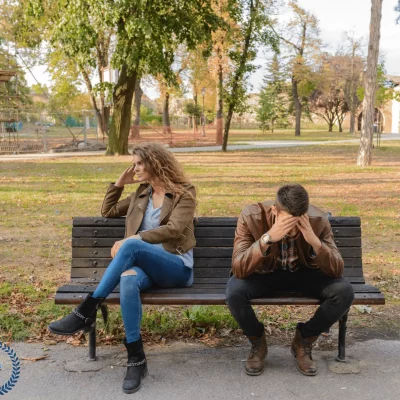What is Trauma? Gender Differences with Trauma
Approximately 50% of all individuals will experience some type of traumatic event in their lifetime. Several variations of traumatic events can develop and influence mental health disorders in men and women. They often co-exist with other disorders such as depression, anxiety, and alcohol/substance abuse disorders. They can even express themselves in different ways between genders. Trauma is defined as damage to the mind that is created by a stressful event. The major types of trauma include:
Sexual assault – unwanted and involuntary sexual behavior towards another individual; forcing or coercing someone else to engage in an act against their will in a non-consensual setting (rape, groping, forced kissing, or any other form of harassment in a sexual context)
Child Maltreatment
- neglect – failure to provide a child with adequate food, clothing, shelter, medical care, mental health care, education, supervision, and/or exposing a child to dangerous situations
- physical abuse – causing or attempting to cause physical injury to a child (punching, kicking, beating, burning, etc.)
- sexual abuse – sexual behaviors that take place between a child and adult, or forcibly between two children by the pressure of an adult
- emotional abuse – acts against a child that could cause conduct, cognitive, affective, or other mental disturbances such as verbal abuse, emotional abuse, and/or excessive demands on a child’s behavior that may eventually lead to negative self-image
Domestic violence – the act of or the threat of physical, sexual, and/or emotional violence between adults in an intimate relationship
War related trauma – exposure to war, political violence, terrorism, combat related trauma (military personnel engaged in warfare who were exposed to deaths and threats to life)
School/community violence – personal conflicts between people who are not family (robbery, shootings, rape, etc.)
Medical trauma – caused by invasive medical procedures or frightening treatments that cause pain, injury, or illness
Traumatic loss – sudden, unexpected grief following the death of a loved one
Natural disasters – tornados, hurricanes, earthquakes, etc. that causes extreme damage to the extent that local, state, or federal agencies and disaster relief agencies are contacted
Everyone can respond to trauma in different ways, and there is no right or wrong way to feel after being exposed to trauma. These are a few of the most common symptoms that are seen in individuals after a traumatic event:
Emotional/psychological symptoms: shock, denial, disbelief, confusion, difficulty concentrating, anger, anxiety, guilt, withdrawing from others, feeling sad or hopeless, isolation
Physical symptoms: insomnia or nightmares, fatigue, being easily startled, racing heartbeat, agitation, aches and pains, muscle tension
Women with Trauma Gender Differences with Trauma
Women are twice as likely to experience longer traumatic symptoms, develop post-traumatic stress disorder, and express more sensitivity to ideations that remind them of the traumatic event. Why could this be? Just like with other health disturbances, researchers believe it could be due to the idea that women tend to seek help, report symptoms, and be more involved in their healthcare than men. After a fearful or worrisome event, it is normal to feel anxious and afraid for a while, but these feelings typically fade within a few weeks. For some women, they continue to feel anxious about the event for months to years after. The thoughts can become crippling and interfere with completing daily activities. Women who have experienced trauma, such as military combat are more likely than men to develop post-traumatic stress disorder. This is characterized by the reliving of a traumatic event through flashbacks, nightmares, anxiety, and/or other uncontrollable thoughts. They become more easily startled, have trouble feeling emotions or report feeling “numb,” avoid things that remind them of the trauma, or feel depressed and anxious more than usual.
Men with Trauma Gender Differences with Trauma
Even though trauma is more likely to affect women, the symptoms that men experience should not be downplayed. Females may experience more sexual abuse while males tend to experience physical abuse. Trauma is more likely to make women depressed or anxious while it makes men more aggressive. This could correlate with the theory that men sometimes do not properly express their feelings in a healthy manner. Unfortunately, our society has created unwritten “Man Rules” that men feel they must live by. “Don’t be weak, don’t ask for help, don’t cry, don’t show emotion, and be brave” are what males are told from a young age. This idea of suppressing emotions when it comes to trauma is so unhealthy! It’s not easy at first, but facing the trauma and inner pain associated with it is the key to a healthy treatment plan. Finding someone you can trust, whether it be a family member, close friend, loved one, or therapist can make the discussion tremendously easier.
Trauma Treatment
The most effective treatment for a traumatic event is psychotherapy or “talk therapy.” Cognitive behavioral therapy (CBT) is a form of talk therapy that helps an individual recognize their thought patterns and advises them to create more positive thoughts. In the case of treating trauma, the individual and therapist would discuss negative beliefs about the trauma and how to avoid the idea of traumatic events happening again. Exposure therapy is another form of therapy that can be used with CBT for individuals experiencing trauma. With exposure therapy, the person is exposed to the event that causes them anxiety or worry and is taught ways to avoid letting the exposure become too overwhelming by “re-entering” the setting. These treatment methods can help the individual gain control of their feelings about trauma while creating a plan to stay distracted and maintain healthier thoughts.
How Can We Help?
If you are experiencing any of these symptoms it is important to get help. With the proper mental health advice, symptoms of trauma can be treated and we can help you get your health on track. We can provide mental health counseling for different types of trauma right here in our office. We can also provide PTSD Assessments for Medical Marijuana. Please contact our office at (412)-532-1249 to schedule according to your availability and preferred location.
—
About Makin Wellness
Founded in 2017 , Makin Wellness is Pittsburgh’s premier therapy & coaching centers located in Downtown Pittsburgh and Downtown New Kensington. The company’s mission is to help people heal and become happy again. Makin Wellness specializes in depression, anxiety, addiction, trauma, medical marijuana assisted treatment and relationship counseling.

MSEd, LPC, NCC
Founder of Makin Wellness








